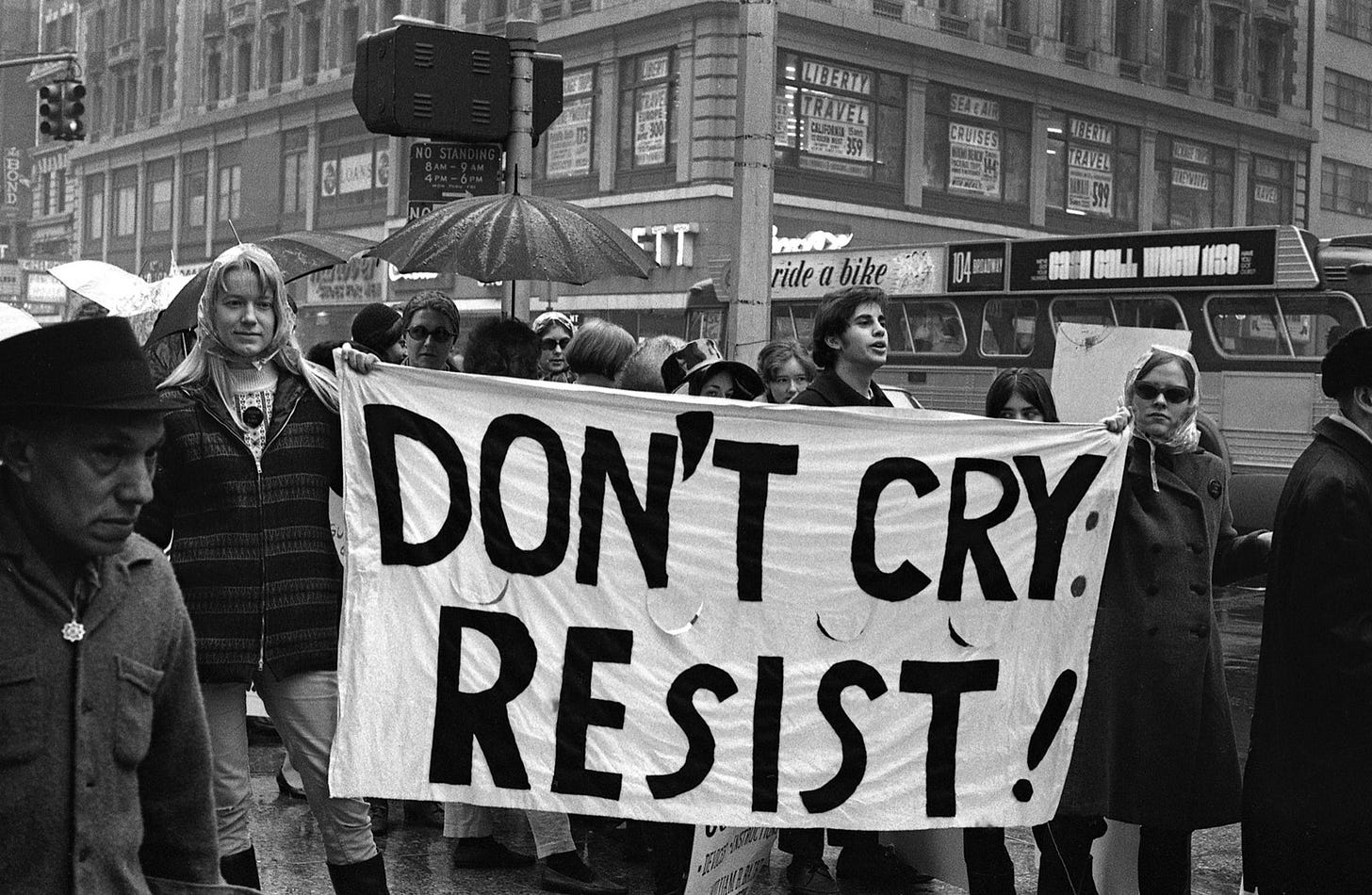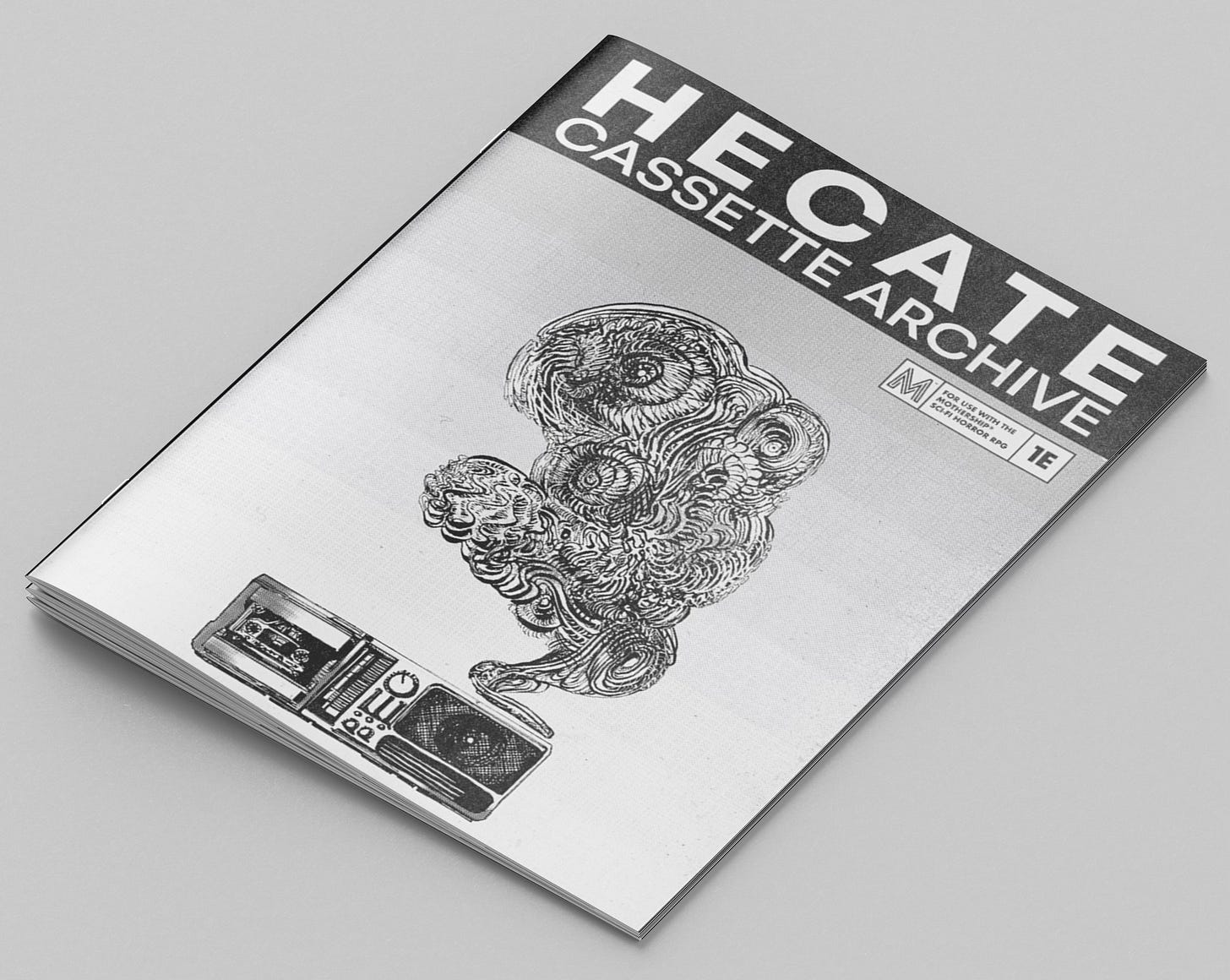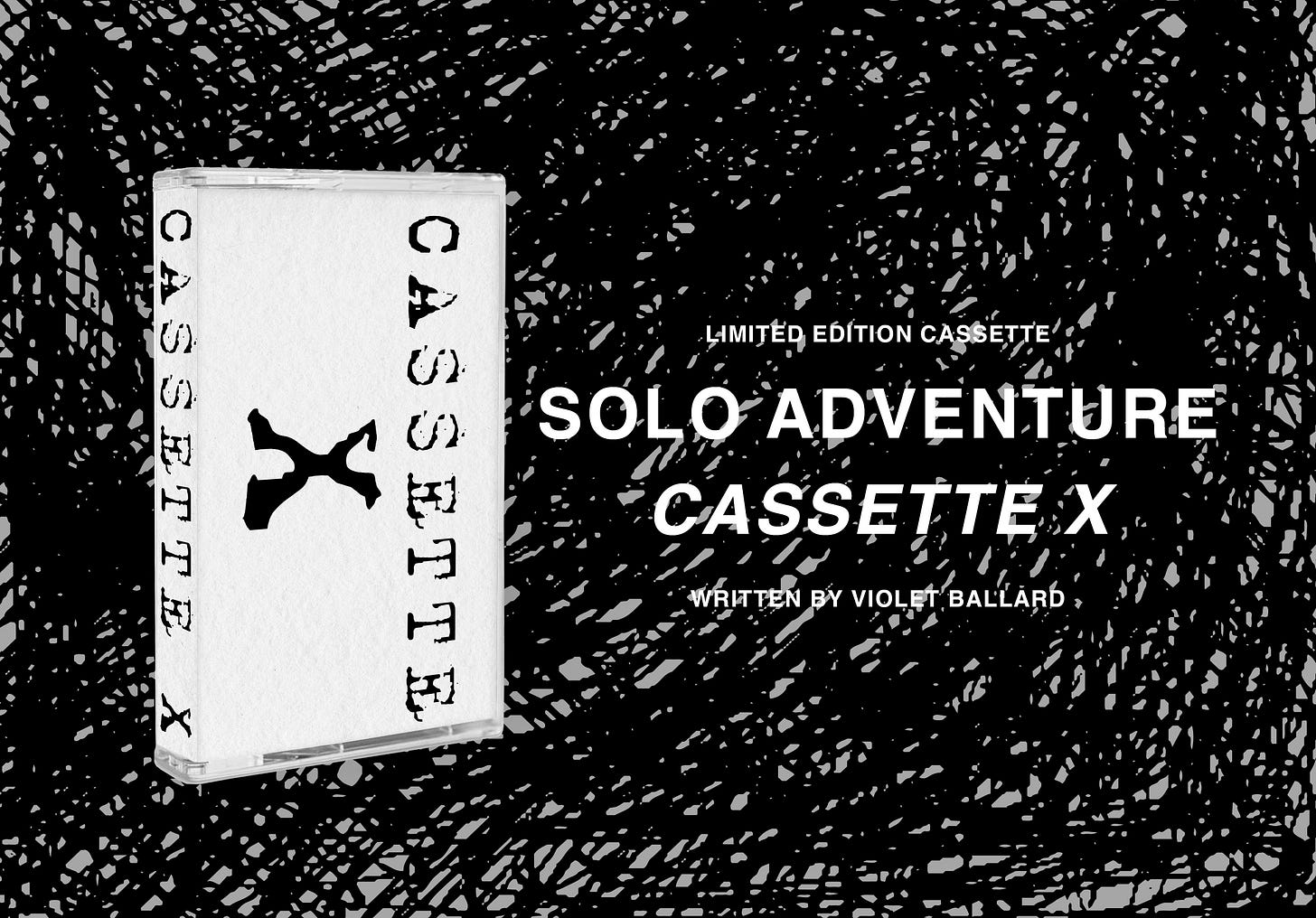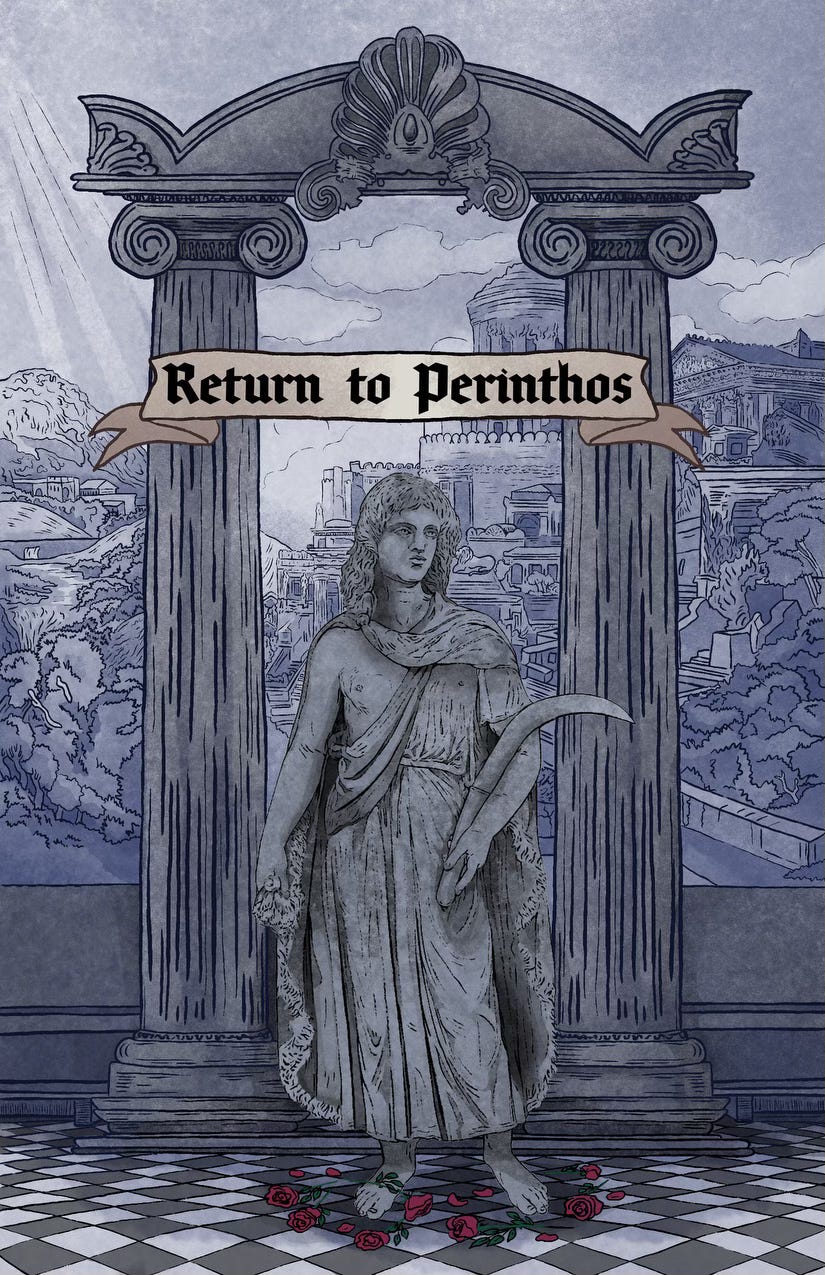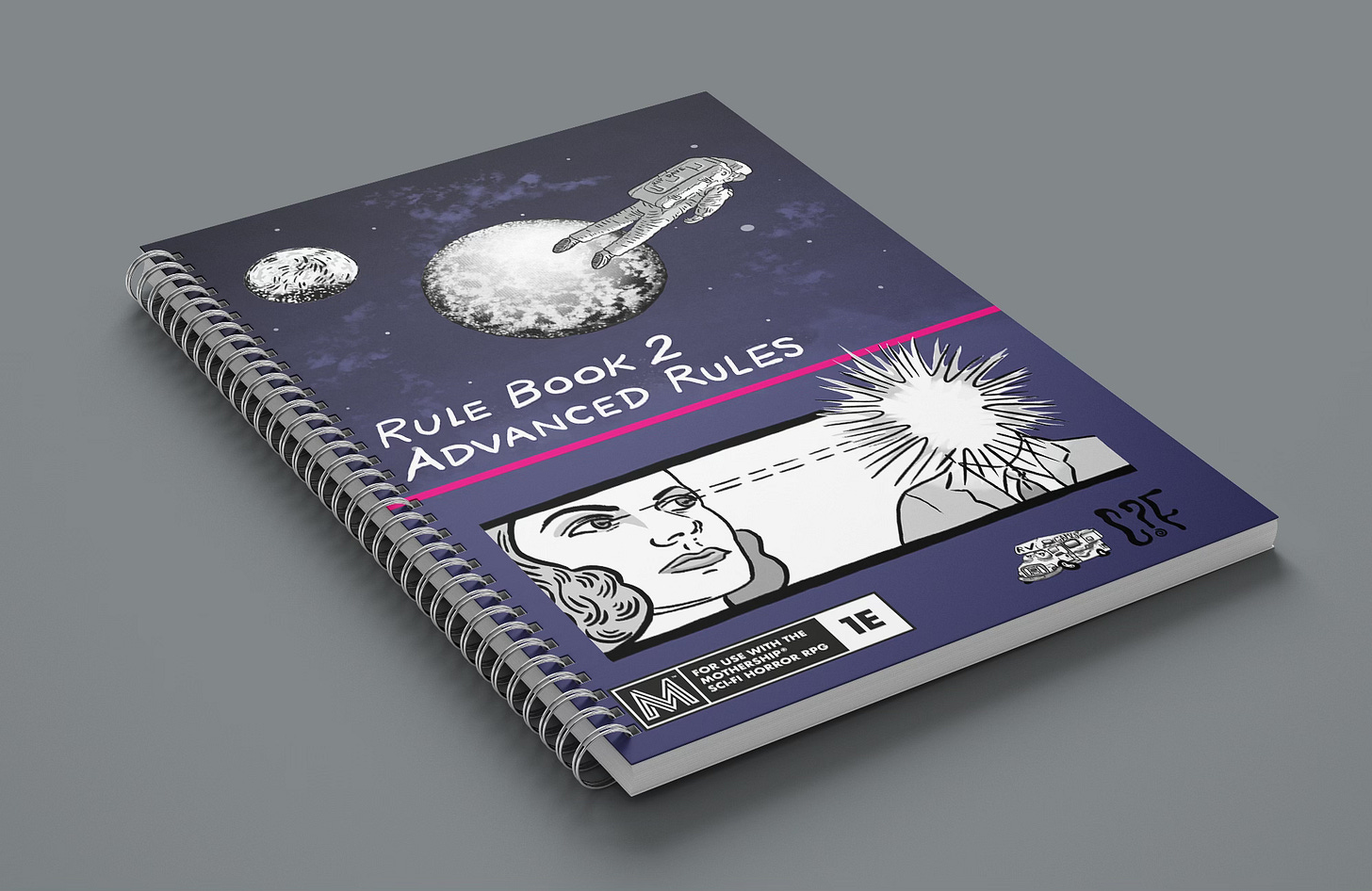The Adventure Gaming Periodical - Issue #13 - Earth: After Death
An Interview With Brenden Carlson
Disclosure: RV Games is distributing Earth: After Death, so this is partially a promotional interview
Earth: After Death - Launching on Kickstarter May 7
Post-Apocalyptic Survival Roleplaying, A Spiritual Successor to Gamma World 1e
Welcome everyone! This issue of The AGP is an interview with Brenden Carlson about his next game, Earth: After Death.
Tell me about Earth: After Death. What is your elevator pitch?
Earth: After Death is a post-apocalyptic dungeon crawler, heavily inspired by AD&D and the old TSR-style of games, and is billed as the spiritual successor to Gamma World. Just like how Fallout succeeded Wasteland, Earth: After Death is designed to be approachable yet advanced and have mechanical depth, and have its own stylistic identity while retaining the general vibe of what Gamma World offered: a world that was once familiar becoming incredibly alien and dangerous.
Describe the system used in Earth: After Death. What was your design philosophy?
Everyone and their mother uses a d20, and while I tried using the criminally underrated d12, it just made sense to use the d20 as the base dice, both as a callback to its roots, and because that made the math work the best. It's a roll-under style system, meaning that rolling the target number or under is a success, making it easy for players and GMs to know if they succeeded or failed without having to look up a “Difficulty Challenge” or a, *shudder*, THAC0 chart. The number needed to succeed (Success Threshold) is often modified by the player's listed Skills, which are increased in whatever order the player wishes as they level up and gain Skill Points. This allows the player to feel as if they are directing the evolution of their character as they progress, instead of being stuck on a prescribed path as most modern RPGs (or the one prevalent RPG) are notorious for.
How did you develop the idea that turned into Earth: After Death?
Truth be told, the original idea came in 2014 when I was first introduced to the hobby, and wanted a Fallout-style post-apocalyptic game, but unfortunately I was too naive and unfamiliar with the space to look into the classic games. When I did, I found absolutely wonderful and creative projects, but none of them really tickled the fantasy I had in my head for a game that catered to what I wanted and got out of my favourite CRPGs. However, delving headfirst into classic TSR products and watching plenty of Adventure Time coalesced the idea which would eventually become Earth: After Death as it is now.
What role has sensitivity reading played in the development of Earth: After Death? What benefit have you found from this type of reading? Are there any challenges you encountered from this type of reading?
As an avid horror TTRPG player and horror media fan, I understand both pushing the envelope in order to create evocative stories, as well as knowing when something is a bit too much. My main concern with Earth: After Death in a sensitivity context is the inclusion of slaves that can be both played as and interacted with. While it can be a useful tool to explore history and humanity, I specifically wanted to represent slavery in a respectful way that avoided falling into stereotypes. In fact, my sensitivity reader - Anah Tiller - brought up a wonderful point on the struggles between slaves and serfs given the clash of those forced to serve versus willingly serving or giving up their freedom. Such a concept couldn't ever have come up had I not had her as someone to read my work and make sure it was representative as well as respectful. I wholeheartedly think that sensitivity reading can be a powerful creative tool, especially for sensitive topics where a creator isn't as knowledgeable or wants a second opinion.
What is the product that you are about to launch on Kickstarter? Tell me about what will be included.
Previously, I have printed and distributed a pre-release of the game, with the intent of getting blind playtests of it before the full production stage. Thanks to the supporters of this project, the Kickstart is launching with an edited and smoothened Wastelander's Handbook (player's guide), alongside a separate Overseer’s Manual (GM’s guide), the Apocalyptic Dreams adventure booklet, and a cardstock Overseer's Terminal (GM screen). I want whoever invests in the Kickstarter to get their money's worth and to see my company as one that produces quality products within reliable timelines.
How do you manage personal responsibilities and your creative work?
I'm a nuclear chemist in my day job, and so while I can't sit down and smash out pages and pages of content, I've been able to find snippets of time here and there to jot down notes, ideas, build stat blocks, or edit my work during breaks or during slow days. Oftentimes I'm running three parallel documents with a project: the notes on my phone, the raw whitepaper in my computer, and the actual file everything gets refined and positioned inside. I feel like I'm a unique case not because I'm a workaholic (I love having downtime and not doing anything), but because I know how to best utilize whatever free moments I have. If I can't directly build the project in its final form, I can always edit, brainstorm, or refine what I've saved and exported in between deadlines and my “real job.”
Discussion
In this interview, the question about sensitivity readers is most interesting to me. I’m of two minds on using sensitivity readers: I don’t think folks should preemptively censor work that could be controversial, and I think it’s good to get other folks to read your work who have different backgrounds and can illuminate blind spots. It’s hard for me to be an absolutist about anything. All of my work is openly Queer and controversial since Queer is a political stance, and I can’t let fear of being misunderstood get in the way of putting out work that I feel is personal and important in the climate Queer folks are facing right now, being turned into a wedge in the ongoing culture wars. However, if I I am including characters who have experienced a different life than I have as a college educated White professor and former teacher and administrator, I want to make sure that I am not causing harm due to something I have included in my work. My work all seeks to illuminate liberation in some way, and liberation has to happen in solidarity.
Hecate Cassette Archive - Late Pledges Open
A supernatural Mothership 1e adventure of anarchy and analog audio
Written by Joshua Justice
Art by Amanda Lee Franck
Layout by D.N. Wilkie
Maps by Justin Vandermeer
Published and Distributed by RV Games
The highest pledge tiers also include a tape of audio and a solo prequel adventure in the liner notes.
Quality Assurance (QA) - Late Pledges Open
An orbital disaster, a race against time, and one very special robot. Escape with the target, save some lives, or die trying. A one-shot for Mothership 1e. Distributed by RV Games.
Return to Perinthos - Still Able to Donate
A 200-page memorial book of megadungeon tiles in the memory of Jennell Jaquays. Community made, distributed by RV Games.
Advanced Rules - Late Pledges Open
A 100-page community compendium of house rules for Wardens and Mothership creators
Written and Compiled by Violet Ballard
Edited by Roz Leahy
Published and Distributed by RV Games




